FIEs frustrated with new abode rules
Manufacturers in the southern province of Dong Nai have reflected that since Decree No.35/2022/ND-CP came into effect in July last year, they remain confused about implementing the regulations regarding accommodation for foreign workers.
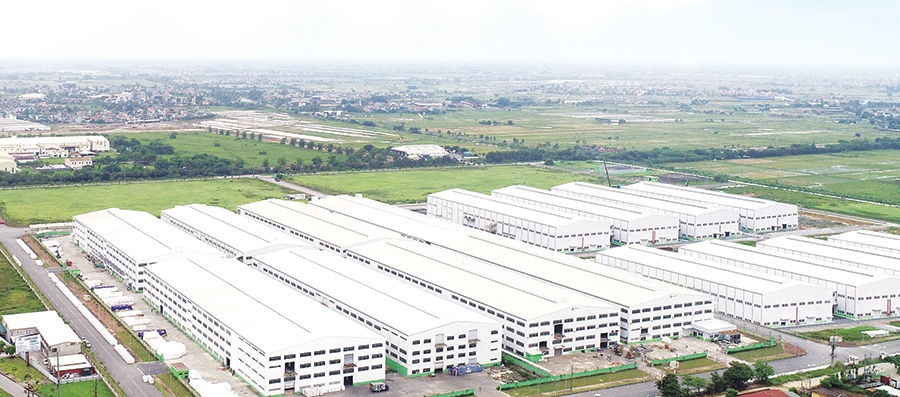 |
| FIEs frustrated with new abode rules, illustration photo. |
Many factories currently have dorms on their campus for their workers. However, the new regulation in Decree 35 asks workers of entire enterprises to live in a concentrated accommodation area within the industrial zones (IZs). In other words, according to the new rules, IZ developers have to arrange particular land in the complex for enterprises to build dorms for their expats, instead of them living in dorms on factories’ campuses.
A Dong Nai representative of the Korean Chamber of Commerce and Industry in Vietnam, said at a February meeting that Korean expats often want to live in areas that have international schools to be favourable for their children, such as District 7 or Thu Duc in Ho Chi Minh City.
“The distance to their factories is far and the traffic is frustrating, and factories often operate all day and night, thus expats have to stay at the factories to resolve technical troubles,” Whan said.
Before the introduction of Decree 35, expats would often take their downtime in private rooms at hotels near manufacturing areas, or in office buildings at the factories.
“But Decree 35 requires expats to stay in concentrated abodes in IZs, but we have no such facilities in Dong Nai. As a result, enterprises are forced to book hotel rooms for them, which come at a large cost,” he said. Whan has asked the authorities to build concentrated lodgings for foreign workers as soon as possible.
A representative of Samil Vina Co., Ltd., in Long Thanh IZ said that Article 25 of Decree 35 regulates that accommodation establishments must be built on the area of land intended for services of IZs. They must ensure conformance to environmentally safe distance requirements set out in the Law on Construction and other relevant regulatory provisions; and ensure conformance to social security requirements and no adverse impacts on production and business activities inside the perimeter of IZs.
“The company currently has dorms for expats on the company’s campus. However, because the decree does not allow enterprises to use such accommodation, we had to contact the operating unit of Long Thanh IZ to study land plots to hire or to build dorms – but they say that the land for this has run out,” the representative said.
Responding to opinions, Dong Nai Industrial Zones Management Authority acknowledged that current IZs do not have sufficient accommodation built for this purpose. Manufacturers are often proactive in arranging resting places for overseas workers near the manufacturing area of factories and office building areas. Thus, they cannot now comply with the regulations about accommodation as laid out in Decree 35.
Dong Nai is collecting corporate opinions to report to its people’s committee to allow businesses to maintain accommodation at factories for at least the next few months, with the hope a solution can be found.
The same situation is being felt at many other IZs, such as in Haiphong and Nam Dinh in the north of the country.
A representative of Nam Dinh Industrial Zones Management Authority said many large-scale enterprises also built housing for their foreign workers. At present, the local authority is asking these enterprises to restructure their accommodation area for business purposes. At the same time, it is working with the provincial leadership to adjust planning, so that land planned for accommodation can be turned into industrial service land, thus enterprises can maintain accommodation for their foreign workers.
Responding to enterprises’ concern, Tran Quoc Trung, deputy director-general of the Economic Zones Management Department under the Ministry of Planning and Investment, said that Decree 35 allows enterprises to build housing for foreign workers at land areas planned to be service land area of IZs. If enterprises built housing areas before the decree came into effect, they are still allowed to maintain their buildings.
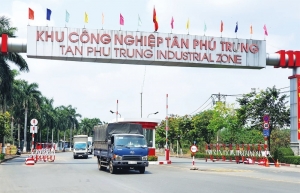 | Industrial real estate faces up to pressures Although it was one of the rare segments to see positive growth in 2022, industrial real estate is forecast to suffer this year due to global macroeconomic uncertainties. |
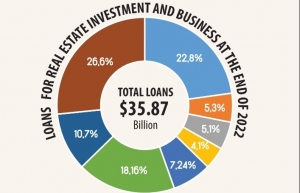 | Real estate bailout “perilous” for system As more than $52 billion is due to banks and bondholders from real estate corporations, not to mention the requirement for additional loans, experts say a purge in the real estate market is unavoidable. |
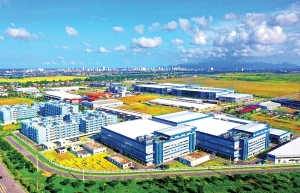 | Localities keen to implement advanced industrial parks Localities nationwide are eager to accelerate the construction of industrial parks to welcome new foreign investment capital inflows in 2023. |
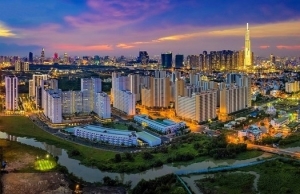 | Vietnamese real estate remain attractive to foreign investors The Vietnamese real estate market has remained attractive to foreign investors and investment funds despite difficulties countering domestic firms, according to insiders. |
What the stars mean:
★ Poor ★ ★ Promising ★★★ Good ★★★★ Very good ★★★★★ Exceptional
Related Contents
Latest News
More News
- Construction firms poised for growth on public investment and capital market support (February 11, 2026 | 11:38)
- Mitsubishi acquires Thuan An 1 residential development from PDR (February 09, 2026 | 08:00)
- Frasers Property and GELEX Infrastructure propose new joint venture (February 07, 2026 | 15:00)
- Sun Group led consortium selected as investor for new urban area (February 06, 2026 | 15:20)
- Vietnam breaks into Top 10 countries and regions for LEED outside the US (February 05, 2026 | 17:56)
- Fairmont opens first Vietnam property in Hanoi (February 04, 2026 | 16:09)
- Real estate investment trusts pivotal for long-term success (February 02, 2026 | 11:09)
- Dong Nai experiences shifting expectations and new industrial cycle (January 28, 2026 | 09:00)
- An Phat 5 Industrial Park targets ESG-driven investors in Hai Phong (January 26, 2026 | 08:30)
- Decree opens incentives for green urban development (January 24, 2026 | 11:18)

 Tag:
Tag:




















 Mobile Version
Mobile Version